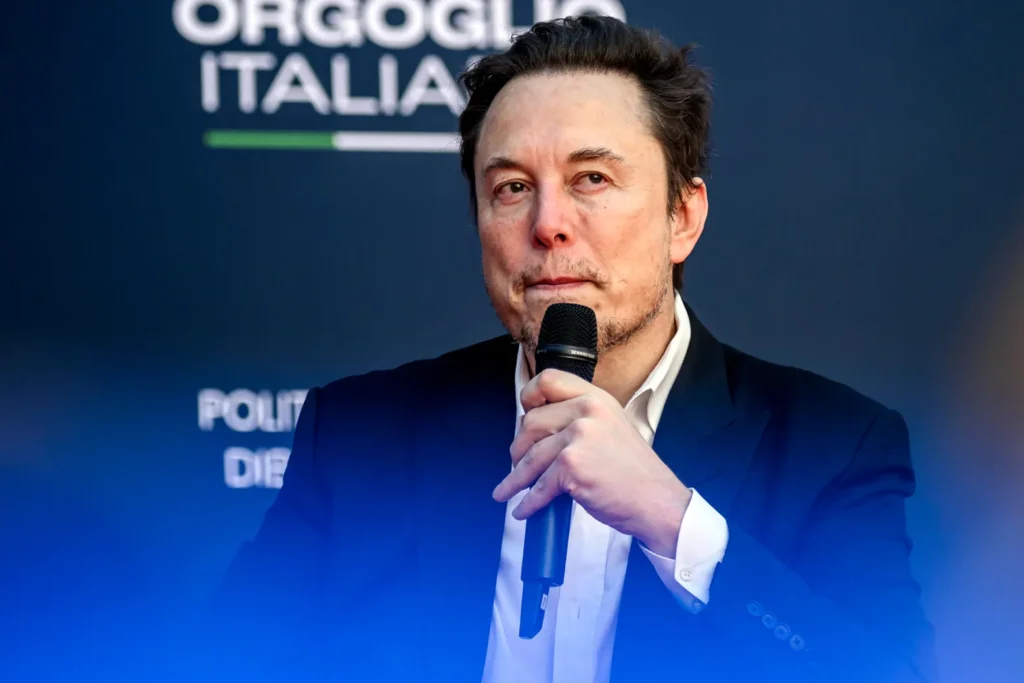House Democrat Accuses Republicans of Protecting Elon Musk’s Chinese Business Ties
Musk’s Ties with China Spark Debate Over U.S. Investment Regulations

Rosa DeLauro accuses Republicans of shielding Elon Musk’s Chinese investments, citing Tesla’s reliance on China and national security concerns
The Debate Over Elon Musk’s Investments in China
WASHINGTON, Dec 21 – A heated debate has erupted in Congress, with Representative Rosa DeLauro, a top Democrat on the House Appropriations Committee, accusing Republicans of shielding Tesla CEO Elon Musk’s business interests in China. DeLauro claims that Republican lawmakers removed critical provisions that would have restricted U.S. investments in Chinese industries, raising concerns about national security and economic dependencies.
Musk’s Influence on U.S. Investment Policies
In a letter addressed to Congress, DeLauro alleged that Musk played a direct role in disrupting the government funding process. According to her, Musk’s extensive investments in China and his personal ties with Chinese Communist Party (CCP) leadership influenced the removal of provisions aimed at regulating U.S. investments in key Chinese technologies.
DeLauro’s concerns stem from Tesla’s growing operations in China, particularly its Shanghai manufacturing plant, which accounts for about 50% of Tesla’s global automobile production. In 2023, nearly a quarter of Tesla’s global revenue came from the sales of vehicles made in China, further highlighting the company’s reliance on the Chinese market.
Expansion in China Raises Red Flags
Adding to the controversy is Tesla’s recent $200 million investment in a Chinese factory dedicated to producing large batteries crucial for electric vehicle supply chains. This development has drawn criticism from lawmakers and industry experts advocating for stricter investment screening.
DeLauro emphasized the importance of including large battery manufacturing in outbound investment regulations, as these technologies are vital to both economic security and defense capabilities. “Musk’s growing investments in China raise serious questions about supply chain vulnerabilities and national security risks,” she stated.
Musk’s Response: A Social Media War
Musk, known for his candid social media presence, responded to DeLauro’s accusations with a series of critical posts on X (formerly Twitter). In one post, he called for her expulsion from Congress, fueling a political firestorm.
The billionaire CEO has been vocal in his opposition to the government funding bill, which initially included the Chinese investment restrictions. His criticism has amplified divisions among lawmakers, with some accusing Musk of leveraging his influence to shape U.S. policies in his favor.
The National Security Perspective
DeLauro’s letter also highlighted the broader implications of Musk’s investments in China. She warned that without stringent regulations, U.S. investors could inadvertently support sectors that pose risks to national security. In October, the Treasury Department finalized rules limiting investments in Chinese artificial intelligence and other advanced technology sectors, but DeLauro argues these measures do not go far enough.
Advocates for stronger regulations have consistently pushed for the inclusion of battery manufacturing in the list of restricted sectors. They argue that critical technologies tied to energy storage and electric vehicles should not be overlooked, given their strategic importance.
The Path Forward
On the House floor, DeLauro vowed to continue fighting for tighter investment restrictions. She accused Musk of “bullying” Republicans into reversing their stance on the funding bill, undermining efforts to protect U.S. interests.
“This is not just about one company or one individual,” DeLauro stated. “It’s about safeguarding our supply chains and ensuring our critical capabilities remain secure.”
As the debate continues, the controversy underscores the challenges of balancing corporate interests with national security. Musk’s ties with China and his influence over lawmakers have brought the issue of U.S.-China economic relations into sharp focus, prompting calls for greater oversight and accountability.
Summary
Representative Rosa DeLauro, a leading Democrat on the House Appropriations Committee, has accused congressional Republicans of protecting Elon Musk’s financial interests in China by removing restrictions on U.S. investments. DeLauro claims Musk’s extensive business ties in China, including Tesla’s Shanghai plant, which produces 50% of Tesla’s vehicles, and a $200 million battery factory, have influenced Republicans to block regulations aimed at safeguarding U.S. national security.
Tesla’s reliance on China has raised concerns about supply chain vulnerabilities and economic dependencies. Critics argue that large battery manufacturing and other critical technologies should be included in U.S. outbound investment screening.
Musk has responded by criticizing DeLauro on X (formerly Twitter), intensifying the political divide. Meanwhile, DeLauro remains committed to pushing for tighter investment restrictions to protect U.S. strategic interests, emphasizing the importance of safeguarding critical supply chains and capabilities.
This controversy highlights the growing tension between corporate interests, national security, and U.S.-China economic relations.
About the Author
Michael
Administrator
Michael David is a visionary AI content creator and proud Cambridge University graduate, known for blending sharp storytelling with cutting-edge technology. His talent lies in crafting compelling, insight-driven narratives that resonate with global audiences.With expertise in tech writing, content strategy, and brand storytelling, Michael partners with forward-thinking companies to shape powerful digital identities. Always ahead of the curve, he delivers high-impact content that not only informs but inspires.



